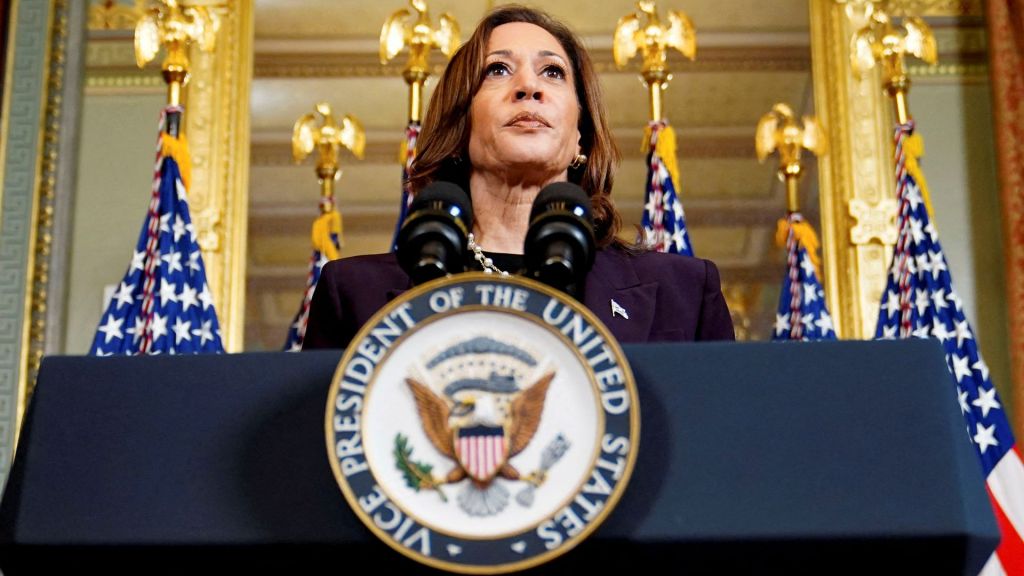
Commentary
-
Our commentary partners will help you reach your own conclusions on complex topics.
Every day we are finding out more and more that what President Biden really loves is big government and political power.
So, it is no surprise that the president and his party are now unfurling legislation aimed at protecting unions, who also love big government and political power.
A big concern right now is called the PRO Act — Protecting the Right to Organize – a union expansion the House has already passed which Senate Democrats have buried inside of their budget reconciliation bill so it can pass with a simple majority not subject to filibuster.
What certain unions want is to take the country in the opposite direction where it needs to go in this new era of global competition and technology-enabled freelancing.
But other unions, like those that represent truckers and journalists, are concerned about independent contractors being run out of their jobs. The PRO Act is the nationalization of California’s AB5 law that passed in 2019.
AB5 makes hiring independent contractors much more difficult and specifies that contractors must be reclassified by businesses that hire them as employees unless they meet specific and rigorous standards allowing them to stay independent.
California’s AB5 and the PRO Act now making its way through the Congress takes direct aim at the “gig economy,” ie: freelancers, entrepreneurs, and many others from all different stripes, all different complexions.
People are buying into the flexibility of being independent contractors. This is not the time to go back to the old days of big unions.
But entrepreneurship and flexibility are exactly what big-government politicians and certain special interest unions don’t want.
It’s interesting that Uber, Lyft, and DoorDash, got themselves from under AB5 through the passage of California’s ballot initiative Proposition 22 in November 2020. It was on the ballot, they got themselves out.
But still stuck are folks like trucker drivers who are independent operators. And we wonder why we have a bottle neck down at the ports.
Truckers are seeking relief through the courts, now principally through the California Truckers Association. They’re moving a case to be heard in the Supreme Court.
Another alarming provision of the PRO Act would be to effectively eliminate the right-to-work laws that exist today in 27 states. Right-to-work laws enable workers in unionized workplaces that do not wish to join the union and pay dues, to opt out. But the PRO Act eliminates this option and forces all workers to pay union dues.
There’s considerable academic research that points to the positive economic results in right-to-work states. We’re talking higher employment growth, higher productivity, higher population growth, and higher personal income growth compared with states without right-to-work laws.
Also significant to know before we allow these DC Democrats to sneak the Pro Act into law is that in a recent Census Bureau Report on net population outbound and inbound for every state, data showed that 9 of the 10 states with the highest population inbound were right-to-work states, and 8 of the 10 states with the highest population outbound were forced-unionization states.
It’s not an accident that today, the number of American workers in unions is about half what it was 40 years ago.
We are entering into new times. Sweeping change was already taking place before COVID-19 hit us. Now our post-COVID-19 economy is reemerging with new realities.
For our marketplace to get where it needs to go, we must embrace change, embrace the new, embrace entrepreneurship and flexibility. But these are all things progressives don’t want.
And if the PRO Act becomes law, today’s challenges regarding labor and supply shortages will just get worse.
-
Expect bold action from President Trump and Congress in 2025
President-elect Donald Trump has a long list of global and domestic issues to confront as he prepares his return to the presidency later this month. Among other things, he’ll be seeking to secure Senate approval for his cabinet nominations and will begin working with the new Congress on a budget reconciliation bill. Watch the above… -
Scott Turner is a great choice for Housing and Urban Development
Incoming President-elect Donald Trump has nominated Scott Turner for the position of secretary of Housing and Urban Development (HUD). Turner previously worked with Trump’s former HUD chief, Ben Carson, and is a staunch opponent of government housing assistance, one of the primary functions of the department. Watch the above video as Straight Arrow News contributor… -
Reconnecting with America’s founding principles this Christmas
This holiday season concludes a dramatic election cycle, with Republicans reclaiming the presidency and the Senate while retaining their majority in the House. Meanwhile, Democrats are regrouping and strategizing their path forward. Key issues such as abortion rights, border security, the economy, and climate change continue to highlight deep ideological divides, setting the stage for… -
Time to say goodbye to DEI
Even before Donald Trump won the presidential election and the GOP took control of Congress, diversity, equity, and inclusion (DEI) policies had come under increasing scrutiny, facing efforts to dismantle them across college campuses, corporate America and the federal government. On Dec. 11, the U.S. House passed the National Defense Authorization Act, which includes GOP-backed… -
President Trump needs a free-market Labor Secretary
President-elect Donald Trump has nominated U.S. Rep. Lori Chavez-DeRemer, R-Ore., as his pick for secretary of labor. The AFL-CIO says that Chavez-DeRemer has a poor voting record, yet concedes that she has been an ally of unions and has consistently supported workers’ rights to organize. The Teamsters Union strongly endorsed her as a moderate Republican…
Latest Opinions
-
 AP Images
AP Images
Hamas accepts draft ceasefire deal in Gaza: Officials
-
 Getty Images
Getty Images
SEC sues Elon Musk over Twitter stake disclosure, says shareholders lost $150M
-
 Getty Images
Getty Images
S. Korean police arrest President Yoon after impeachment
-
 Getty Images
Getty Images
Biden makes late foreign policy moves on Cuba, Asia-Pacific
-
 Getty Images
Getty Images
Will Illinois become the first state to decriminalize sex work?
Popular Opinions
-
In addition to the facts, we believe it’s vital to hear perspectives from all sides of the political spectrum.






